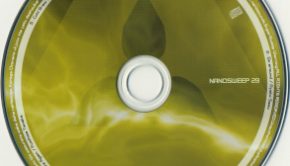Happi Happy Happy! -Soyo ☆ Miko ☆ Twinkle-
 |
Album Title: Happi Happy Happy! -Soyo ☆ Miko ☆ Twinkle- |
| Record Label: Sweep Record |
|
| Catalog No.: SRIN-1117 |
|
| Release Date: December 13, 2013 |
|
| Purchase: Buy at CDJapan |
Overview
The Happi Happy Happy! / Soyo ☆ Miko ☆ Twinkle release by Supersweep is an interesting release. Unlike many of their releases, this is their first release from a Pachinko machine. There are a variety of vocal themes composed by a variety of contributors, including Takahide Azuyawa of GEM Impact, that pad out the majority of the album, as well as some instrumental music. In addition, Supersweep’s Ayako Saso and Kazuhiro Kobayashi contribute two bonus remixes of two vocal themes on the album. Given this is probably something most game music fans are not going to be familiar with, is it worth a purchase?
Body
The album opens up with the vocal themes and the remixes by Supersweep. The first tune, “Yosakoi Souran Haru Natsu Aki Fuyu Ver.,” composed by Takahide Ayuzawa is a nice blend of rock and Japanese instrumentation. It features a very bubbly melody, some wonderful harmonies, especially in regards to the Japanese woodwinds incorporated, and the vocals help carry the energy of the song. “Iza ike! Inasemaru,” composed by YOFFY, continues with the rock and Japanese fusion; however, this theme is definitely more pop rock oriented with electric guitar dominating the tune whereas the Japanese instrumentation is primarily used as an accompaniment. “Sasayakana Negai,” composed by Otaris, ditches the Japanese side of the previous vocal themes and instead takes a pop rock ballad approach and features a beautiful blend of strings, synthesizer, and electric guitar.
“Muteki Moudo de Supaakuru ☆彡,” composed by Yoffy, is another bubbly tune that takes on more of an electronic soundscape, focusing on a catchy dance beat with some rock accompaniment and a great guitar solo and also forgoes any strong Japanese influence in terms of instrumentation. “Inase da ne,” composed by a-cha, is another Japanese rock fusion, but it also includes a bit of jazz influence, particularly in the piano chords and features a somewhat sultry soundscape at times. It’s a really fun tune overall and boasts a strong melody as well. “Koi no happii koroubaa,” composed by Kenichiro Ohishi, is another tune that boasts a very bubbly melody. It takes on a Japanese soundscape mixed with almost a retro vibe in the electronic components of the tune and is one of the tunes that will definitely leave a lasting impression in terms of melody.
The last vocal theme, “Pachiko ☆ Hapipo,” composed by MACARONI☆, is a culmination of the styles heard on the album. It features a very happy and catchy melody with plenty of rock, synthesizer, and Japanese elements and really manages to impress. Of course, a couple vocal tunes are also remixed. Ayako Saso’s “Sunrise! Inasemaru-Remix,” a remix of “Iza ike! Inasemaru,” takes the original and transforms it into an electronic remix that retains the Japanese flavor of the original, despite the shifting focus into a primarily synth dominated piece. I really enjoy the new energy that the rave style in this piece brings and I think the style fits the vocalist a bit more, personally. The other remix, “Koi no happii koroubaa -Re8bitMix,” takes the already retro sounding original and transforms it into a sleek and sexy chiptune remix. It’s a really neat take on the original and while it may not be the most creative interpretation of the vocal theme, it really helps add some charm to the already infectious melody.
There are also some instrumental tunes and vocal sound effects that populate the rest of the CD release. While the vocal sound effects are entirely skippable, the short instrumental tunes, usually lasting between a minute and a minute and a half, are quite enjoyable and are primarily Japanese in atmosphere mixed with some dance elements to make them stand out while in the Pachinko parlors. There are also some tunes towards the end of the release that focus more on jazzier elements rather than Japanese elements.
Summary
In the end, the Happi Happy Happy! / Soyo ☆ Miko ☆ Twinkle release isn’t going to be for everyone, as pachinko is certainly not a major player in Western culture. However, for those that enjoy Japanese vocal themes, this album definitely has something to offer and the vocal compositions and remixes are pretty solid overall. The BGM featured at the end of the album, which is what you would hear while playing the game, also manage to make a statement, despite their shorter durations, and really fit with the elements featured in the vocal themes.
Do you agree with the review and score? Let us know in the comments below!
3.5
Posted on March 21, 2014 by Don Kotowski. Last modified on January 17, 2016.














